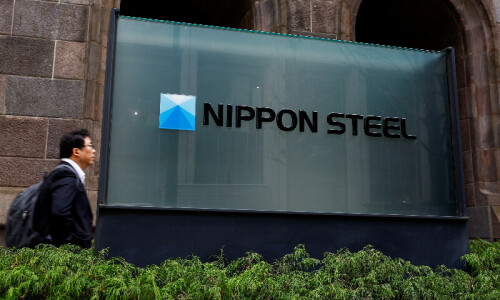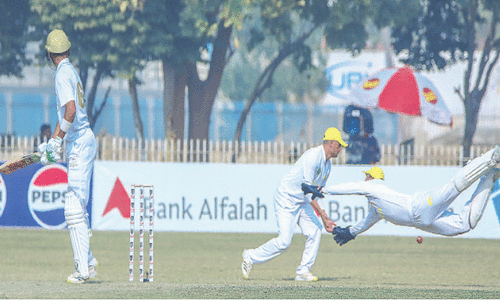Grappling with the challenges ahead, the PTI government is now trying to build a national consensus on policies and strategies that could put the economy on the path of sustainable development.
Federal Minister for Planning and Development Khusro Bakhtiar has urged the government and the opposition to sign the charter of economy to prevent Pakistan’s return to the International Monetary Fund (IMF) for bailout packages.
Prime Minister Imran Khan is also reported to be receptive to the idea and has agreed to the formation of a committee consisting of all political groups from both houses of parliament for recommending solutions to various problems. The PTI now realises that its fragile support in the National Assembly is a stumbling block for any major move for positive change.
The possibility cannot be ruled out that army’s top brass may finally reach the conclusion that the country’s best defence lies in a robust, dynamic economy
The proposal for the charter of economy (CoE) was initiated by Asif Zardari and Shahbaz Sharif sometime ago and reiterated by them recently in the National Assembly. But Nawaz League does not seem to be in a hurry. Endorsing Maryam Nawaz’s views that the proposed CoE was a joke, PML-N senior leader Khawaja Asif said the party would not discuss the issue till the national political scenario improved.
Incidentally, the budget proposals and its harsh punitive measures stipulated in the tax collection drive for the next year do not enjoy unqualified support of even many PTI members of parliament.
That includes former finance minister Asad Umar. The Senate has unanimously adopted recommendations on the Finance Bill 2019-20 with the joint support of both the opposition and the treasury benches.
While it has rejected ‘the tax increasing and price hiking measures in totality’, its recommendations are not binding on the government.
Starting with the task force(s), the PTI’s search for a fresh approach for resolving lingering issues goes on with no solution yet in sight but for the IMF programme, whatever its intrinsic worth may be.
The government’s acceptance of the CoE coincides with the move to set up a high-powered body — National Development Council (NDC) — comprising of top representatives of multiple government leaders including movers and shakers in their own jurisdiction.
The NDC members will comprise of Chief of Army Staff General Qamar Javed Bajwa, the chief minsters of four provinces, Gilgit Baltistan and Azad Kashmir and important federal ministers. Prime Minister Imran Khan will be its head.
As the composition indicates, the council will depend on inputs and recommendations from a wide range of government institutions that would form the basis of exchange of views/consultations among multiple stakeholders for policy formulation.
Interestingly, the army’s apparatus has embraced worries about development.
Speaking conceptually, the NDC’s nomenclature and its terms of reference indicate that development will be accorded a high priority, though the government’s current overriding job is to achieve macroeconomic stability.
The council’s mandate is: (i) to set policies and strategies for development (ii) formulate and tailor policies to achieve accelerated economic growth (iii) approve long-term planning for national and regional connectivity and (iv) provide guidelines for regional cooperation.
Finally the question arises: who will call the shots in the NDC and towards what end?
The stark ground realities may not allow much leeway and would be the final arbitrator. The forum will offer an opportunity to the defence personnel to have a much better exposure to the gravity of the economic situation.
And the possibility cannot be ruled out that army’s top brass may finally reach the conclusion that the country’s best defence lies in a robust, dynamic economy and not in a frequently recurring, worsening financial crisis.
With the PTI having little to show for its 10-month performance, the next year’s budget proposal to contain defence spending shows which way the wind is blowing. There is a limit to milking a sinking economy with much reduced potential to pay taxes. The declaration of assets under the amnesty scheme is one thing and earning from those assets is something different.
Critics argue that the setting up of NDC is an extra-constitutional step. Former Senate chairman Mian Raza Rabbani says “you cannot override Article 156 of the Constitution through a notification for creating an extraconstitutional organ having functions parallel to a Constitutional institution.” Rabbani fears that associating the army chief with economic policies of a political government would expose the defence forces to public criticism.
The government is also ignoring provisions for the federal, democratic and egalitarian course set by the Constitution. The National Finance Commission and Council of Common Interests are a forgotten story. It is a stalemate beyond the competence of the PTI’s current approach to resolve issues in fiscal federalism that could boost tax revenues and the country’s socio-economic development.
It calls for understanding and cooperation among all tiers of government likely to face severe financial pressure in the next financial year owing to cuts in expenditure and rising inflation.
The ground realities are sending a loud and clear message: no single institution, political party or empowered individual can resolve deep-seated structural and recurring cyclic financial/economic crisis and political instability. It requires a collective national effort.
Published in Dawn, The Business and Finance Weekly, July 1st, 2019














































